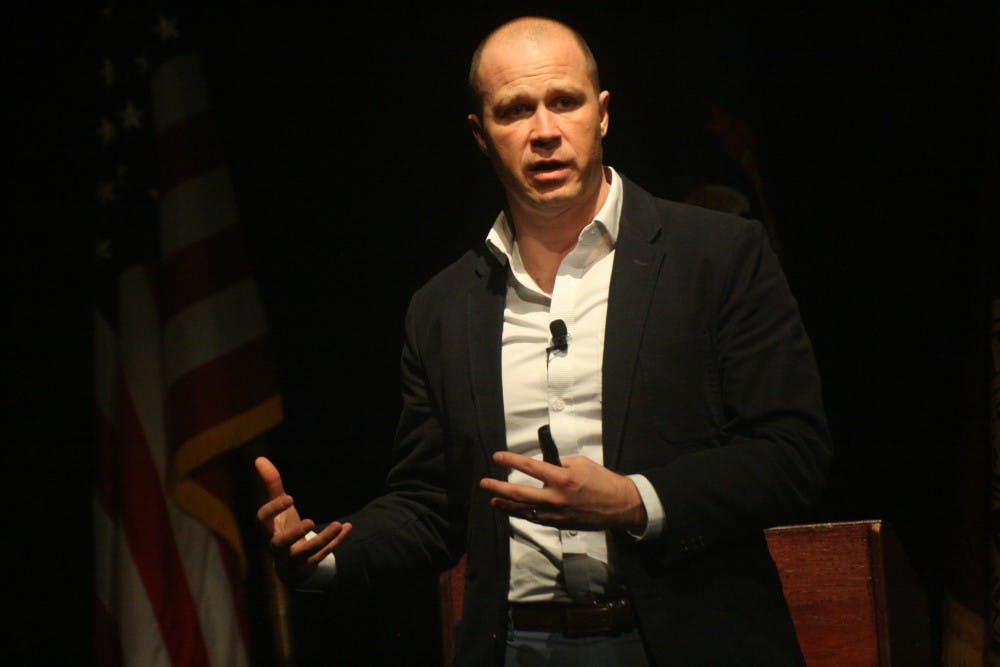Speaker Keith Edwards discusses sexual assault prevention

Keith Edwards’ message is loud and clear: sexual assault is an issue that must be stopped.
Edwards, who speaks on sexual violence prevention, visited Plachta Auditorium on March 21 to give his talk: "Creating a Culture of Consent". This presentation discusses sexual aggression, how to recognize the signs of sexual violence and what to do if people find themselves in these types of situations.
Edwards focused most on how to lower the number of assaults each year. The statistics of assault have been proven to be the same for the past 30 years, showing that one in four college women have reported sexual assault, or attempted sexual assault.
When Edwards asked how many people know of someone who has been in one of these situations, some in the audience raised their hands.
"It's not that you don't know someone who has experienced sexual violence — you have,” Edwards said. “They just haven't told you".
In the case that a survivor has made their situation known, Edwards provided four steps to supporting them:
- First, make sure they are safe.
- Second, believe them — only between 2-4 percent of assault cases are false. This is the same number of false car theft reports.
- The third step is ensuring that the survivor knows it is not their fault. The first person to blame a survivor, is the survivor.
- The final step is to empower them. Try and guide them through the healing process and be there for them to lean on, but let them make their own decisions, so they know they still have control over their lives.
Men are almost always the perpetrators of these cases, but they can also have a huge impact on solving them, Edwards said. Once they stop believing that is only a women's issue, they can become more proactive and take steps to help prevent it.
Edwards stressed in the presentation that "affirmative consent must be given freely along every step of the way,” he said. If not, it can become a situation where one person believes the encounter is consensual, when it is in fact, not.
An anonymous student told Edwards in an interview once, "Although I truly believe this encounter between us was consensual, I recognize now that she did not and does not view the incident the same way I did.”
Edwards reminded everyone that the problem was not learning what behaviors were unacceptable, because they are already known. The problem, he said, is unlearning the behaviors that can lead to sexual assault that have been taught already.
Essexville sophomore Sam Featherston decided to attend the event because he had seen it advertised on Twitter and the Central Michigan University website and needed to go to an event about oppression for class.
"Although there weren't many people in the audience, it will spread their word of mouth with the domino effect like he told us,” Featherston said. “It was definitely impactful on me".
Edwards has been giving presentations for 15 years and performed them at more than 150 different colleges and conferences, including a Ted Talk. He has also written multiple books.Those wishing to learn more about "Creating a Culture of Consent" can visit Edwards’ website.



